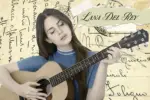Since George Floyd’s murder on May 30, protests have broken out across the United States and the globe. These demonstrations are in support of the Black Lives Matter movement and call for an end to racism and police brutality. As ordinary citizens advocate for change, celebrities have also dedicated their time and resources to bring attention to the need for justice.
Some stars have supported the movement by donating to organizations fighting to eliminate racial inequality. For example, Blake Lively and Ryan Reynolds donated $200,000 to the NAACP Legal Defense Fund. Chrissy Teigen and John Legend also promised a $200,000 donation to bail fund initiatives across the country. Director Jordan Peele pledged to donate $1 million to black organizations such as the Black Emotional and Mental Health Collective, Equal Justice Initiative, Transgender Gender-Variant & Intersex Justice Project and Fair Fight.
One of the most widely recognized initiatives in the midst of George Floyd’s murder is the Minnesota Freedom Fund. The organizers of the fund use donations to bail out activists arrested during the protests. Film directors Benny and Josh Safdie first donated to the fund, starting a chain of other celebrity contributions. Among those who participated in matching, or even surpassed, the Safdie brothers’ initial donation are actors Seth Rogen, Don Cheadle and Steve Carrell.
Others have even attended protests themselves. Halsey, Nick Cannon, Keke Palmer, Yungblud, Michael B. Jordan and Jon Boyega are just a few of the many stars who have taken their beliefs to the streets. With face masks and signs held high, these celebrities joined chants calling for justice and, in some cases, joined the frontlines of the crowds. In fact, in London’s Hyde Park, Boyega gave a speech clearly defining just how important the Black Lives Matter movement is to him.
“I’m speaking to you from my heart. Look, I don’t know if I’m going to have a career after this, but f— that. Today is about innocent people who were halfway through their process. We don’t know what George Floyd could have achieved. We don’t know what Sandra Bland could have achieved. But today we’re going to make sure that won’t be an alien thought to our young ones,” he said.
Despite their level of fame and fortune, police officers have detained and attacked several celebrities, treating them like any other protester. Officers reportedly arrested Cole Sprouse on June 3 while protesting. On his social media, he wrote a message telling his followers that though the media would focus on him being arrested because of his social standing and recognition, the Black Lives Matter movement should remain the focal point.
He then described how police officers gave protesters the option to stay and be arrested or to disperse. When some tried to leave, however, the police encircled the crowd, making it impossible to leave.
Halsey also used her social media to broadcast just how gruesome and dangerous the protests are. “I have first hand treated men, women and children who have been shot in the chest, the face, the back. Some will lose vision, some have lost fingers. I have been covered in innocent blood,” she said in an Instagram post on June 1.
These celebrities did not receive any special treatment. Just like the other protestors, officers attacked them with rubber bullets, pepper spray and unnecessary force. Of course, the media should not focus on Black Lives Matter just because celebrities are involved. It is through their participation, however, that the efforts toward change can be realized.
While many celebrities are being praised for their donations and participation in protests, the public has criticized other stars for their lackluster responses to the movement. For instance, the Kardashians posted their support on their Instagram stories and even changed their bios to spell out Black Lives Matter with fists of all different colors. For many, the posts came far too late considering the fact that the family has black husbands and children.
The Kardashian response has further been tainted by Kendall Jenner’s infamous Pepsi ad from 2017. In the commercial, she marches through a crowd of protestors and gives a can of Pepsi to a police officer on the opposing side. This simple action apparently erased all the tension and underlying social issues as the crowd erupts into cheers and applause. Critics have deemed the commercial as overwhelmingly tone-deaf in its attempt to address racism in the U.S. Furthermore, Jenner only spoke out on the George Floyd protests after the ad resurfaced.
Along with uninspired celebrity responses to BLM, media outlets have also been exposing public figures for their problematic statements on race throughout the years. In the past week, CW executives fired Hartley Sawyer who plays Ralph Dibney on the “The Flash” for his racist and misogynistic tweets from 2012. Within the same week, the Bravo network fired several “Vanderpump Rules” cast members from the show for racist comments.
As celebrities donate their money, platforms and time, they are providing resources needed to empower black people in America to overcome white supremacy. By sharing educational resources and information on protest preparation and safety, they are proving to be instrumental in the fight for justice. These large donations in particular are supporting ordinary citizens, especially those of color and lower socio-economic class, to exercise their rights.
The great swath of celebrity responses to the recent protests is a testament to how much the BLM movement has grown over the years. Since its inception in 2013 when three self-described “radical Black organizers,” Alicia Garza, Patrisse Cullors and Opal Tometi, created the movement, they have amassed a large following that is bringing about necessary systematic change. While celebrity support has certainly moved the cause forward, it is imperative that the media’s focus remains on the movement, not the celebrities.

















